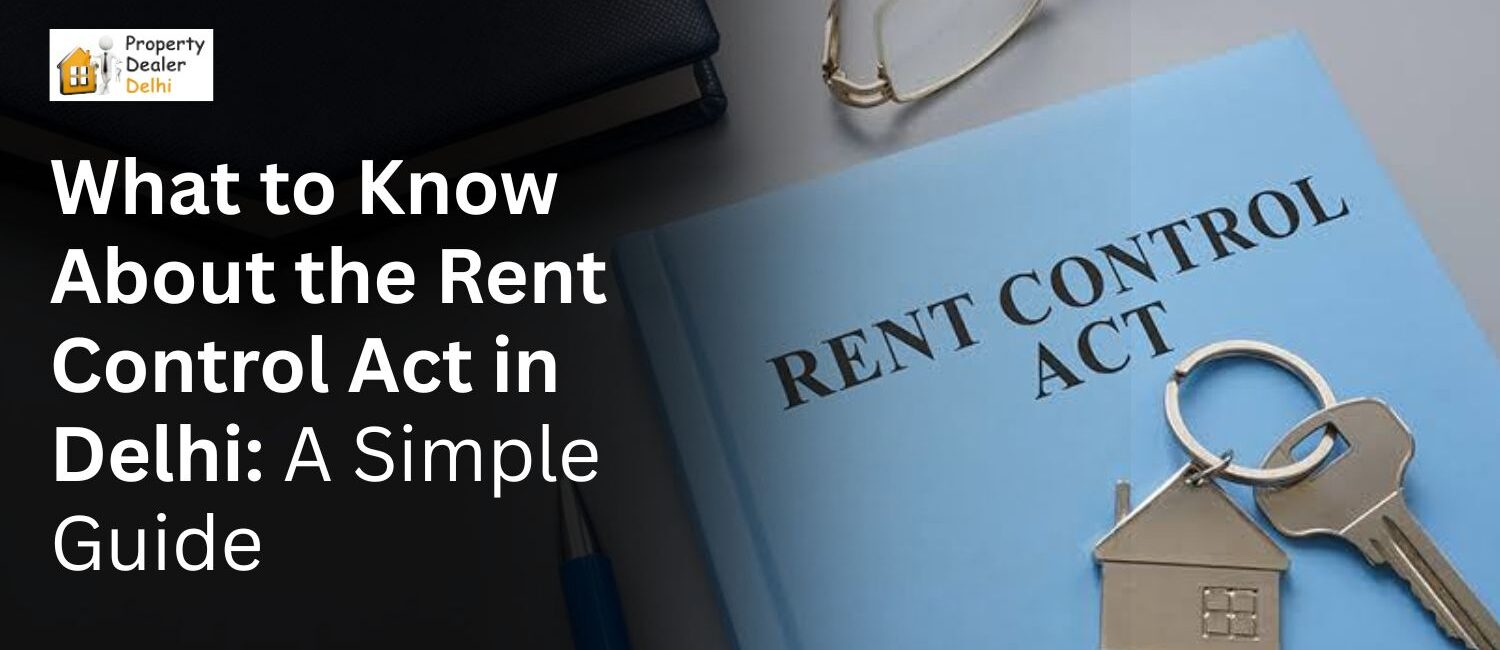
Rent control laws are designed to protect both landlords and tenants, ensuring that neither party is treated unfairly in the rental process. Rent Control Act in Delhi governs rental agreements, aiming to balance the interests of property owners and renters. This article provides an easy-to-understand overview of the Rent Control Act in Delhi, explaining its importance, key provisions, and how it affects both landlords and tenants.
Understanding the Rent Control Act
The Rent Control Act is a set of laws aimed at regulating the relationship between landlords and tenants. In Delhi, the Delhi Rent Control Act, 1958, is the main law governing rental properties. The primary goal of this Act is to provide affordable rental housing while also protecting the rights of both landlords and tenants. It focuses on fair rent practices, eviction procedures, and disputes between the two parties.
Under the Rent Control Act, tenants are protected from unreasonable rent hikes and unlawful eviction, while landlords can ensure that they are compensated fairly for the use of their property. The law also sets out clear guidelines on issues like repairs, maintenance, and the rights and duties of both parties.

Key Provisions of the Rent Control Act
Rent Control and Rent Increases: One of the most important aspects of the Rent Control Act is rent regulation. The Act restricts landlords from increasing the rent arbitrarily. While landlords can increase rent, it must be done within certain limits, which are typically determined by the local authorities. These increases are usually linked to factors like the age of the property and market conditions.
The law also ensures that rent is fixed at a fair market rate, preventing exploitation of tenants. However, it is important to note that the Act does not apply to all properties. For example, properties built after 2007 are exempt from the Rent Control Act and are instead governed by regular market forces.
Security of Tenure for Tenants: The Rent Control Act provides tenants with security of tenure, meaning that a tenant cannot be evicted without a valid reason. A landlord must have a legitimate cause for eviction, such as non-payment of rent or if the property is required for personal use.
The Act protects tenants from sudden eviction by requiring landlords to follow a legal process, including providing notice and obtaining permission from the court if needed. This provision ensures that tenants are not unfairly displaced, providing them with stability and security in their rental homes.
Eviction Process and Grounds for Eviction: The Rent Control Act specifies the grounds on which a landlord can evict a tenant. Common reasons for eviction include:
- Non-payment of rent: If a tenant fails to pay rent for a certain period, the landlord has the right to begin eviction proceedings.
- Damaging the property: If the tenant causes damage to the property, the landlord can ask them to leave.
- Personal Use: A landlord can also evict a tenant if they need the property for personal use or to accommodate their family members.
- Illegal Activities: If a tenant uses the property for illegal activities, eviction is allowed under the Act.
However, even under these circumstances, landlords must follow legal procedures, and tenants have the right to contest eviction if they believe the grounds are unfair.
Repairs and Maintenance: The Rent Control Act also specifies the responsibilities of both the landlord and the tenant regarding the maintenance and repair of the property. While the landlord is usually responsible for maintaining the structural integrity of the property, tenants are expected to keep the property clean and take care of minor repairs.
If repairs are needed due to the landlord’s negligence or failure to maintain the property, tenants have the right to seek repairs at the landlord’s expense. However, if a tenant causes damage to the property, they may be required to pay for repairs.

Impact of the Rent Control Act on Landlords and Tenants
The Rent Control Act in Delhi benefits both landlords and tenants in several ways. For tenants, the Act ensures that they are not exploited by unreasonable rent hikes or arbitrary evictions. It provides stability, giving tenants the right to live in a rented property for as long as they follow the terms of the agreement.
On the other hand, landlords benefit from the Rent Control Act’s fair rent provisions. While they cannot increase the rent beyond a certain point, the Act ensures that they receive a fair return on their investment. The law also protects landlords from tenants who refuse to vacate the property or cause significant damage.
However, one downside of the Rent Control Act for landlords is that the rent is often set at a lower, government-controlled rate, which may not always align with the current market value of the property. This can make it difficult for landlords to earn maximum profit, particularly in high-demand areas like Delhi.
Conclusion: Rent Control Act in Delhi
The Rent Control Act in Delhi plays a crucial role in balancing the interests of both landlords and tenants. It ensures that tenants are protected from excessive rent hikes and unjust eviction, while also safeguarding the rights of landlords. By outlining clear rules on rent control, eviction procedures, and maintenance responsibilities, the Act helps create a more stable and fair rental market.
For both landlords and tenants, it is essential to understand the provisions of the Rent Control Act before entering into a rental agreement. This knowledge will help you navigate the rental process with confidence, ensuring a smooth and legally compliant experience. Whether you are a landlord seeking to rent out your property or a tenant looking for a new home, understanding the Rent Control Act will help you make better, informed decisions in Delhi property market.

